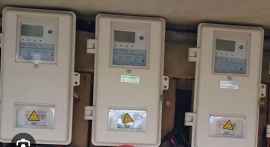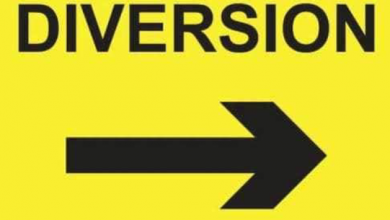
FG increases price of prepaid meters by 145%
CITIZENS COMPASS —Within a period of three years, the Federal Government of Nigeria through the Nigerian Electricity Regulatory Commission (NERC) has increased the prices of prepaid meters by 145 per cent.
The increase was effected between 2021 and 2023.
Findings revealed that NERC has implemented two price increases for single-phase and three-phase pre-paid meters during the period under review.
This has resulted in an 83% and 145% increase in their prices, respectively. The Meters Asset Provider (MAP) scheme, which enables third-party financing of meters across the country, has been affected by this increase.
It was observed that the price of single-phase meters has risen from N44,896.17 in 2021 to N81,975.16 in 2023, while three-phase meters have increased from N82,855.19 in 2021 to N143,836.10 in 2023.
The NERC, which is responsible for approving the pricing of meter sales in the country, has approved two price increases during this period.
The price of a single-phase meter has increased from N44,896.17 in 2021 to N58,661.69 in November 2021, and then to N81,975.16 in September 2023. Similarly, the price of a three-phase meter has increased from N82,855.19 in 2021 to N109,684.36 in 2021 and then to N143,836.10 in 2023.
Explaining why the prices of pre-paid meters were hiked, NERC noted in a press release that the act was necessitated to enable MAP’s ability to recover reasonable costs associated with meter procurement and maintenance while ensuring that their pricing structure allowed for a viable return on investment..
“Evaluate the affordability of meter services for consumers, aiming to prevent excessive pricing that could burden end-users. Ensure that MAPs are able to provide meters to end-use customers in the prevailing economic realities,” it said.
Reports, however, revealed that NERC’s decision was influenced by a request from the Meter Manufacturers and Assemblers Association of Nigeria (MMAAN), which cited an increase in cost of production, export duties, increase in forex, among others, as necessitating the increase of meters.
The group, in a letter addressed to NERC in March, had demanded the prices of the meters go up to N117,323.38 for single-phase meters and N219,368.72 for three-phase prepaid meters as it stated that the cost for each meter costs N101,061.10 and N185,047.20 to produce for single-phase and three-phase meters, respectively.
Despite NERC’s approval of a reduced price, experts have highlighted that the proposed increase would pose challenges for a greater number of electricity consumers to be metered, as they are responsible for purchasing the meters.
The group, in a letter addressed to NERC in March, had demanded the prices of the meters go up to N117,323.38 for single-phase meters and N219,368.72 for three-phase prepaid meters as it stated that the cost for each meter costs N101,061.10 and N185,047.20 to produce for single-phase and three-phase meters, respectively.
Despite NERC’s approval of a reduced price, experts have highlighted that the proposed increase would pose challenges for a greater number of electricity consumers to be metered, as they are responsible for purchasing the meters.
According to data released by the National Bureau of Statistics in the second quarter of 2023, there are currently six million Nigerians who are subject to underestimated billings. Based on the new price of a single-phase meter, unmetered customers would need to pay N491.8bn to gain access to the meters.
Similarly, the President of Nigeria Consumer Protection Network, Kunle Kola Olubiyo, attributed the recent hike in customs import duties/customs charges, devaluation of the naira, and other multiple charges by different government agencies at ports. Olubiyo questioned why it is the responsibility of electricity consumers/end-user customers in the electricity market to provide pre-paid meters or fund the deployment of meters intended to enhance cost recovery, energy accountability, and returns of investment for electricity distribution companies.
He added that the agreement signed by the companies before the sector was privatised under the Service Level Agreement (SLA) was that they would provide the meters as a means to guarantee revenue efficiencies and collection efficiencies.
Reports said that NERC’s decision was influenced by a request from the Meter Manufacturers and Assemblers Association of Nigeria (MMAAN), that cited increase in cost of production, export duties, increase in forex, among others, as necessitating the increase of meters.
The group in a letter addressed to NERC in March had demanded the prices of the meters go up to N117,323.38 for single-phase meters and N219,368.72 for three-phase prepaid meters as it stated that the cost for each meter costs N101,061.10 and N185,047.20 to produce for single-phase and three-phase meters, respectively.
Though NERC approved a reduced price, experts have pointed out that the increase would make it difficult for more electricity consumers to be metered since they are the ones responsible for the purchase of the meters.
According to the data released by the National Bureau of Statistics in the second quarter of 2023, there are currently 6m Nigerians who are under estimated billings.







